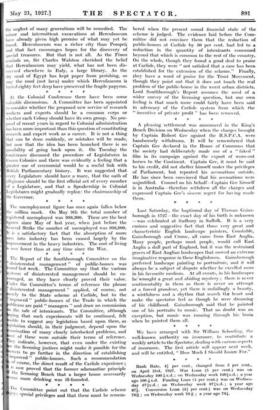The Report of the Southborough Committee on the disinterested management"
of public-houses was ssued last week. The Committee say that the various ystems of disinterested management should be en- ouraged, as they have clearly proved their value. nder the Committee's terms of reference the phrase disinterested management" applied, of course, not erely to the State scheme at Carlisle, but to the Improved" public-houses of the Trade in which the ublicans are paid " managers " and draw no commission n the sale of intoxicants. The Committee, although °Ping that such experiments will be continued, felt nable to suggest any legislation based upon them, as gislation- should, in their judgment, depend upon the animation of many closely interlocked problems, and ost of these were outside their terms of reference. hey indieate, however, that even under the existing v the licensing justices might make it possible for the ewers to go further in the direction of establishing improved" public-houses. Such a recommendation , or course, the direct result of the Carlisle experience ; is now proved that the former adamantine principle the licensing Bench that a larger house necessarily an more drinking was ill-founded.
Th * * * *










































 Previous page
Previous page